A Night Out in Kigali, Rwanda
For those on their first visit to Africa, it is difficult not to have pre-conceived ideas about the continent. This truth is doubly so for Rwanda and its capital Kigali. In 1994, during a bloody civil war, members of the majority Hutu tribe murdered between 500,000 and 1,000,000 Tutsis, constituting in some 70 per cent of the country's Tutsi population.
Those hundred days of bloodshed were surely the darkest of Rwanda's history. After such a seismic event – one that happened just 20 years ago – one imagines it must somehow linger on in Kigali; a permanent black cloud over the capital.
And yet when one arrives in Kigali airport, such darkness is not immediately apparent. The small but clean and well-run airport is often thought of as one of the best in Africa; it was certainly much more modern that I had imagined.
But more striking was the warmth of the security official who issued me with a 30 day visa (£20, paid in Sterling). His smile was broad and he seemed very keen for me to enjoy my stay. And there was no hint of a bribe or 'tip', either!
Having brought only a small 30 litre carry-on backpack, I didn't need to wait at Baggage Reclaim – although it was such a small airport that any bag wouldn't have been long in coming.
I left the air-conditioned airport to take in the unusual surroundings. But outside Kigali Airport those surroundings consisted mainly of taxi drivers looking for a fare into town.
However I had done my homework. I wanted to try a 'moto' motorbike taxi.
I soon regretted this.
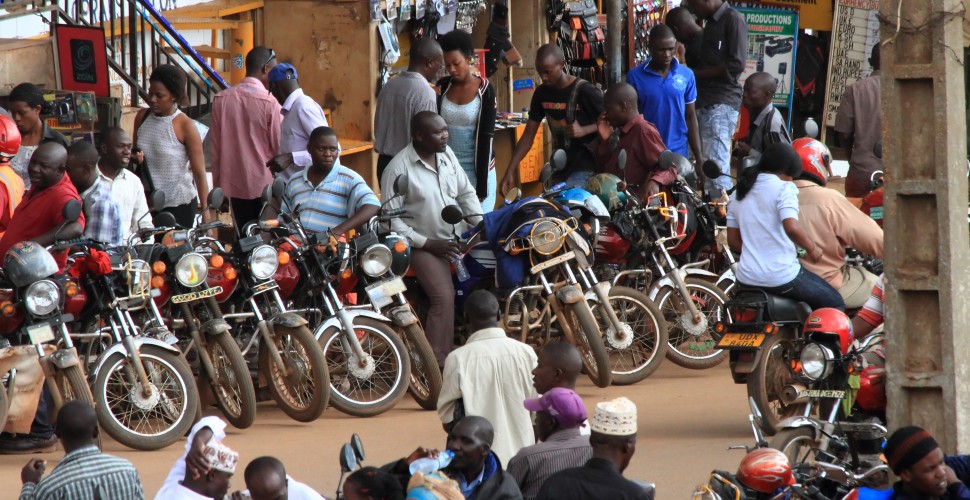 Black Sheep Media/Bigstock.com
Black Sheep Media/Bigstock.com
The airport is linked to the city by a busy road on which the motos can pick up some serious speed. My man wasn't hanging around just because I had a backpack on. My knuckles must have been white as I gripped the handles for dear life, wishing I'd got a proper taxi.
But it was an exciting way to begin my short holiday. Kigali is a bustling, vibrant city. We passed markets where old ladies sold giant plantains and huge heaps of red beans, or sat weaving baskets. Rwandan pop music blasted from clapped out cars and minibuses. It was chaotic, confusing, but very exciting.
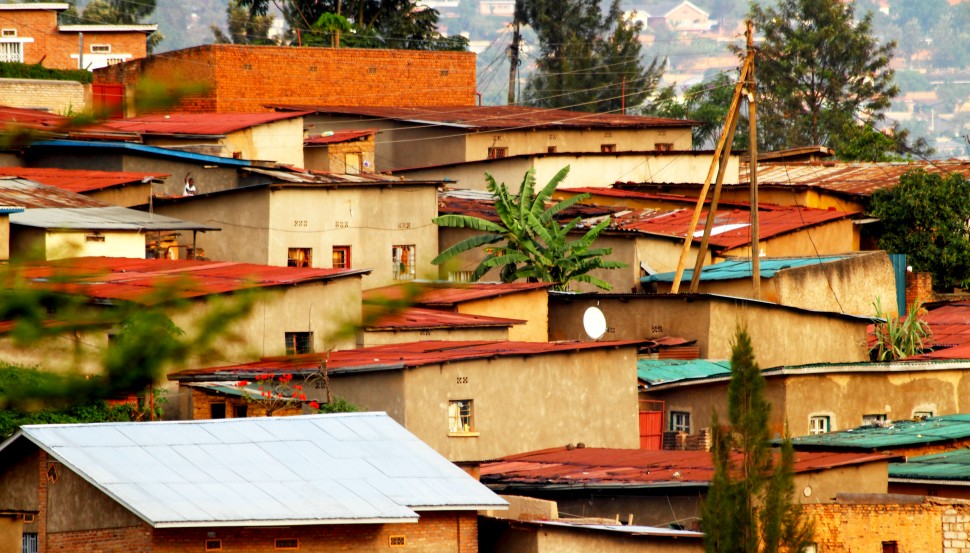
I recalled my plan to visit the silverback gorillas in the Volcanoes National Park. I had wanted to see a gorilla up-close since I was a child – and to see them here in Rwanda seemed to make the prospect all the more thrilling.
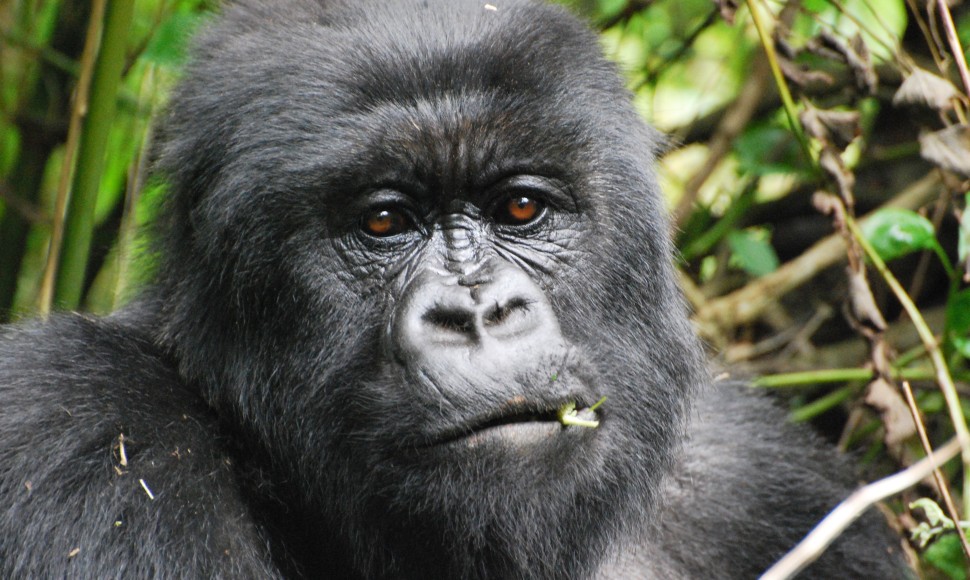
My moto man pointed out a sign: Hôtel des Mille Collines. It took me a while to work out where I had seen this; it was where hotelier Paul Rusesabagina managed to hide members of his family and more than one thousand other refugees during the Genocide – saving them from certain death.
I didn't have the funds to stay in such a place – and even if I did, I wasn't sure I wanted to sleep in a room where terrible tragedies might have unfolded (as well as avoided).
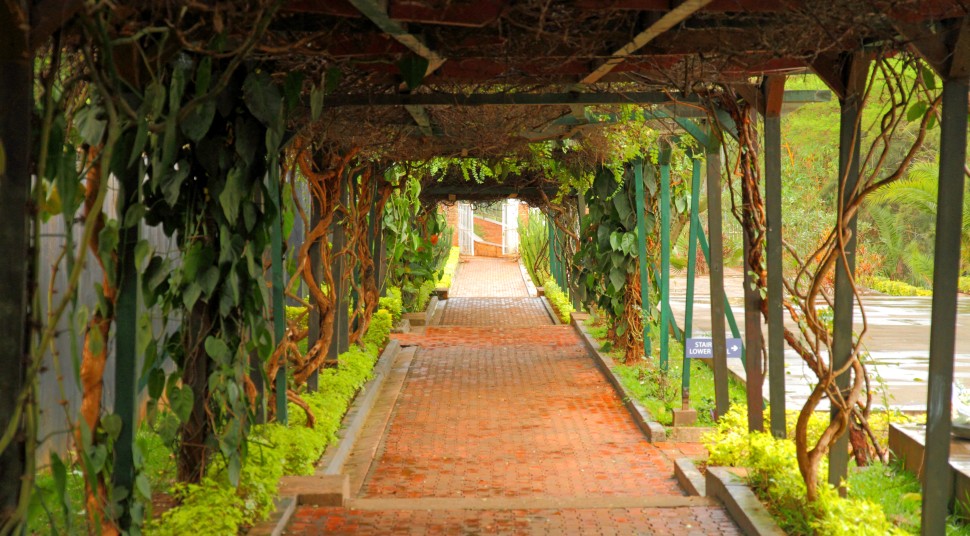 Kigali Genocide Memorial
Kigali Genocide Memorial
My moto man delivered me a few streets away, to where my modestly-priced hotel was located. It looked new – and certainly built later than 1994. Just as at the airport, here too the staff were extremely friendly. My room was comfortable and clean and even had a table and chair outside.
It was soon dark and I took a few ‘Primus' beers in the hotel restaurant, to wash down something called ugali – a maize flour dish accompanied with some sort of fried cabbage and sauce. The waiter explained that traditionally Rwandans would roll a lump of ugali with their right hand, then dip it in the sauce. I thanked the waiter for this information before picking up my knife and fork with a friendly wink.
I decided to venture out into night-time Kigali. After all, I only had a few days in the capital and wanted to see what it had to offer.
Without my backpack the ride into the bar area on the back of a moto was far more enjoyable than the airport trip – arguably even more so thanks to my significant intake of Primus beer.
My smiling moto man dropped me off outside a wine bar establishment. It was pleasant and refined, and sold some decent South African red wine. But I felt a little out of place. Well-dressed Kigalis supped expensive Shiraz and chatted about who-knows-what.
The second establishment was more down-to-earth. Here I sat at a bar in large room where dozens of wooden tables were set out. This time the clientele was more casual – and a lot louder.
I got talking to an Australian, who until I arrived had been sulkily hunkered over his beer. He introduced himself with a tight handshake, apparently keen to speak to a fellow foreigner. Brief flashes of humour and light would appear on his robust Outback features, only to be subsumed by some gloominess. It soon became clear that he had been drinking a fair bit, the reason for which, it transpired, was the missing of some camera equipment.
He impressed upon me the importance of not staying in a certain hotel, since he had had some camera equipment stolen from his room. While the police were helpful, the staff didn't seem to care.
I asked him what he thought of Rwanda and Africa in general. Despite his recent set-back, he said he loved Rwanda – and even Mozambique, where he had been working as an engineer for an oil company. He was in Rwanda for “some R and R”.
He said Australia was boring by comparison – and that he thrived on the excitement of Africa. Aside from engineering, his passion was for photography – which is why he was so angry about losing his equipment. Africa presented so many incredible images, he explained.
But he began telling me some hair raising tales. He produced a smartphone to show me some pictures of an event in Mozambique: a local woman had been killed by a lion. A group of villagers went about tracking down the predator – and this Australian went with them, with his smartphone – the only device he had had to hand. The series of images showed the tracks where the lion had been dragging 'something'.
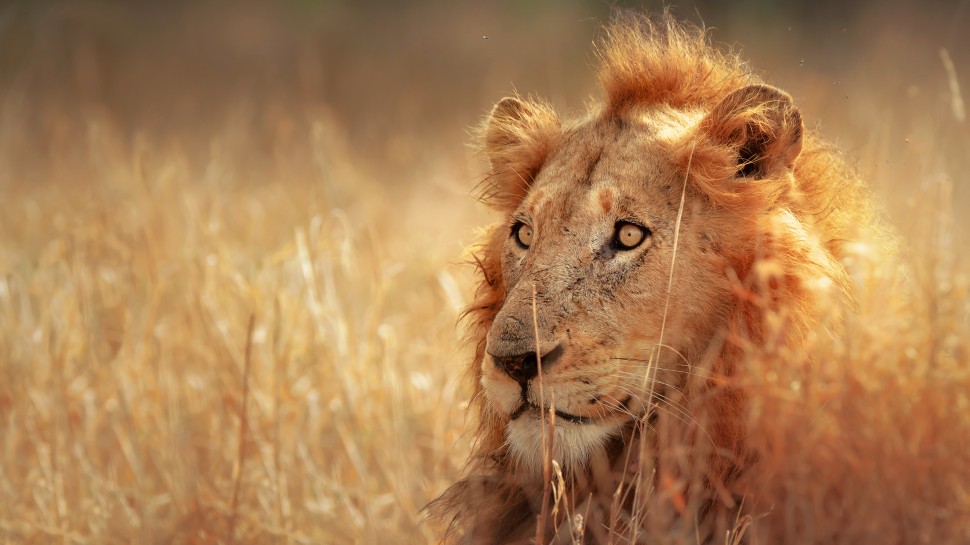
The final image put me off my beer.
He saw the shock on my face. "That's Africa", he said with a shrug. And as I gazed vacantly at my beer I realised that it's impossible to visit Africa without accepting its darker side – whether that be man- or nature-instigated.
Africa, Rwanda and Kigali itself – they could all be as risky as they could welcoming. But I began to understand that this truth made the whole region a more exciting place to be.
I looked forward to the coming days in the Rwandan capital.
Get a Quote